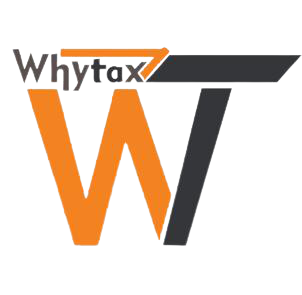TDS Provisions under CGST Act
The concept of Tax Deducted at Source (TDS) under GST was introduced with effect from 1st October 2018, under Section 51 of the Central Goods and Services Tax (CGST) Act, 2017, to enhance tax transparency, plug revenue leakages, and ensure seamless tax collection at the source of supply. Unlike TDS under the Income Tax Act, GST TDS specifically targets transactions involving supply of taxable goods or services by suppliers to specified entities, such as government departments and public sector undertakings.
This analysis serves to guide deductors and deductees a like in understanding their legal, procedural, and compliance obligations under the GST regime.
● Applicability & Entities Involved
TDS under GST applies to notified categories of recipients of goods and services, including:
- Departments/ Establishments of Central and State Governments
- Local Authorities (e.g., municipalities, panchayats).
- Government Agencies
- Notified Entities such as:
- Authorities/ Boards with 51% or more government ownership
- Public Sector Undertakings (PSUs)
- From 10th October2024, registered buyers of metal scrap under Chapters 72 to 81 of the Customs Tariff Act, 1975
These entities are mandated to deduct TDS while making payments to suppliers for taxable contracts.
● Conditions for TDS Deduction
TDS under GST is mandatory when all the following conditions are fulfilled:
Condition Description
Recipient is a notified entity As specified under Section 51
Total contract value > ₹2.5 lakhs Exclusive of GST
Supply is taxable Not exempt or non-taxable
Supplier is registered under GST Unregistered supplier transactions are exempt
The supply is intra-state or eligible inter-state With exceptions, as detailed below deductors must evaluate the value of the entire contract, not in dividual invoices.
● TDS Rates and Nature of Supply
Nature of Supply Rate of TDS and Tax Head Total
Intra-state supply 1%CGST + 1%SGST/UTGST 2%
Inter-state supply 2% IGST 2%
TDS is calculated on the taxable value (excluding GST) at the time of making payment or crediting the supplier’s account, which ever is earlier.
● Exemptions from GST TDS
Certain transactions are exempt from TDS, including:
- Supplies from unregistered suppliers
- Reverse charge transactions (where recipient pays tax directly)
- Transactions between notified persons, except metal scrap (post-10.2024)
- Supplies made by or to Ministry of Defence, except specific agencies notified
- Intra-state supplies where recipient and place of supply are in different States/UTs
- Supply value ≤ ₹2.5 lakhs under a single contract
These exemptions aim to reduce administrative load for non-critical or government-internal transactions.
● Payment and Filing Obligations for Deductors
⬛Deposit of TDS
- TDS must be remitted to the Government within 10 days after the end of the month in which deduction is made.
- Deposits must be made through challans on the GST portal (electronic cash ledger).
- Late deposits attract interest @18% per annum.
⬛Return Filing (Form GSTR-7)
Form Due Date Purpose
GSTR-7 10th of the following month Monthly TDS return by the deductor
⬛TDS Certificate (Form GSTR-7A)
- Auto-generated on filing GSTR-7
- Must be made available to the supplier within 5 days
- Late issuance penalty: ₹100 per day (max ₹5,000)
● Claiming TDS Credit by Deductees
- Upon successful filing of GSTR-7 by the deductor, the deducted amount is reflected in the Electronic cash ledger of the supplier.
- The supplier can use this credit to offset output tax liability or claim a refund in case of
- If incorrect credit is reflected, the supplier can choose to accept/ reject the entry on the GSTN portal.
- Refund of TDS is not permissible once credited to the deductee unless processed under refund provisions.
● Registration Requirements for Deductors
- All deductors must obtain a separate GST registration as TDS deductors under Section 24(vi) of the CGST Act.
- Registration can be obtained using either PAN or TAN.
- No threshold limit applies for deductor
- Registration maybe cancelled if the deductor ceases to be liable under
● Non-Compliance, Penalties, and Interest
Event Consequence
Failure to deduct TDS Interest @18% p.a.
Failure to deposit TDS Interest + Penalty (as per Sec. 122)
Late filing of GSTR-7 ₹100/day per Act(CGST + SGST = ₹200/day), Max ₹10,000
Late issuance of GSTR-7A ₹100/day, Max ₹5,000
● Real-Life Example Scenario:
- A PSU awards a contract to ABC Pvt. Ltd. Worth ₹8,00,000 (excluding GST) for civil
- Applicable GST = ₹1,44,000 (18%)
- Total Invoice = ₹9,44,000
- TDS Deducted = 2% of ₹8,00,000 = ₹16,000
- CGST = ₹8,000
- SGST = ₹8,000
The net payment to ABC Pvt.Ltd. will be ₹9,28,000, and ₹16,000 will be deposited with the government and reflected in the supplier’s ledger.
● Recent Notifications & Clarifications
- TDS provisions extended to scrap dealers effective October 10, 2024
- No separate registration required if the deductor is already a regular GST registrant
- TDS does not apply to exempt or nil-rated supplies
